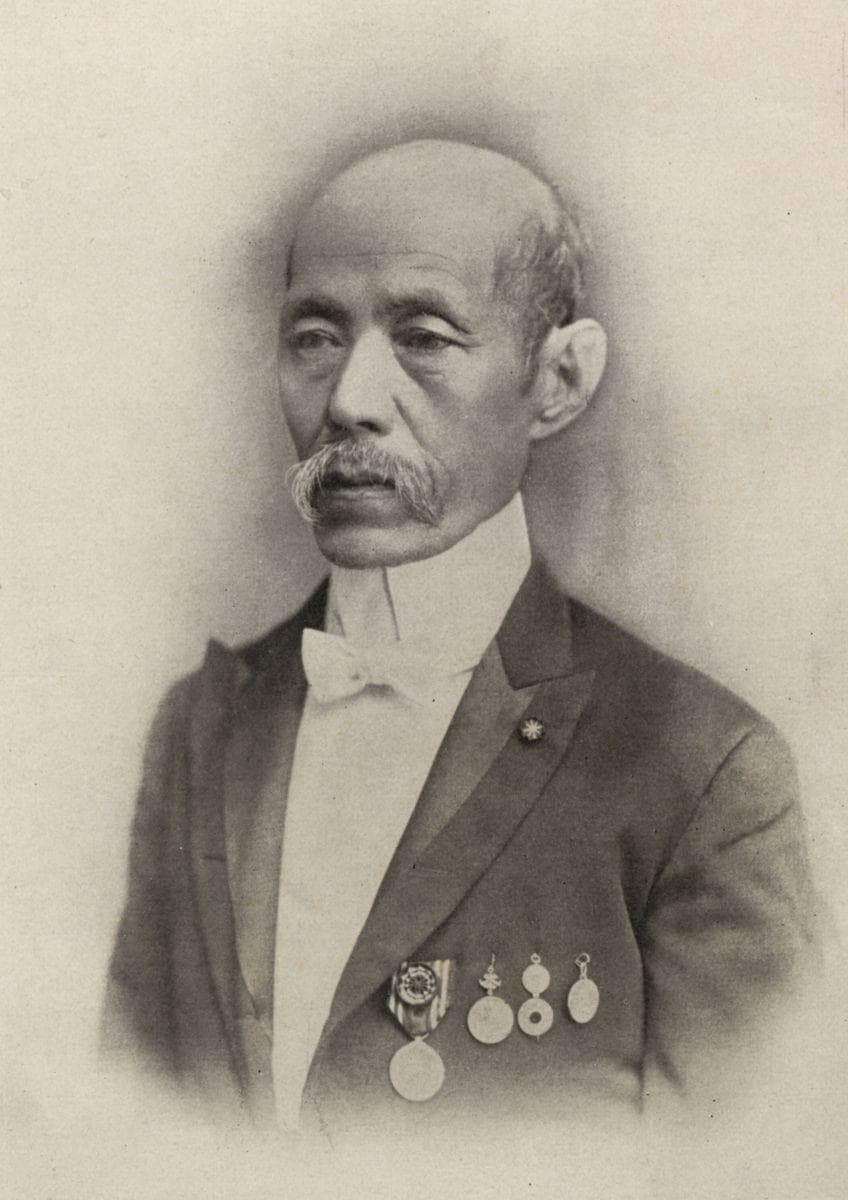History
Early in the Meiji Era, our founder, Mr. Tatsugoro Watanabe, was teaching sewing from his home. Though women at the time were expected to have certain homemaking skills, the prevailing culture felt that women did not need academic knowledge. For that reason, fewer than half as many women as men went to school. In such times, Mr. Watanabe became one of the first to educate women not only in the knowledge and skills of sewing, but also in basic academic skills, such as reading, writing, and mathematics. His educational program empowered and inspired women to become independent. However, most women at the time married at about age 17, leaving them less time than men had to get an education. Mr. Watanabe therefore devised a program to maximize educational benefits with minimal time, effort, and cost. This approach is best symbolized by the making of saiho-hinagata, a type of model for sewing.

Mr. Tatsugoro Watanabe
Mr. Watanabe said that the founding philosophy of the university was to “nurture capable women as role models for a new era and excelling in academics and arts, with a program that suits the times, responds to the needs of the people, and seeks women’s autonomy.” We continue to cling to this founding philosophy in our program today. Our mission is to help women develop a higher level of cultural understanding, develop specialized knowledge and skills, and complete vocational training. We endeavor to foster women who are practical, responsible, eager to work, and truly free. We strive to nurture women who can contribute to the formation and administration of a nation and society with a peaceful, democratic culture.
Former President Mr. Seishiro Aoki composed the university’s life creed. Moved by the sight of students befriending younger women taking the school’s entrance exam in 1951, he chose the words “love, diligence, and wisdom” as the foundation for our school culture. Mr. Aoki explained that the life creed signifies that “We must love others as we love ourselves. However, we must do more than feel love; we must give form to love and show diligence in serving others. Moreover, diligence by itself is not enough; we need wisdom to judge correctly.” These words expressed the virtues that Mr. Aoki encouraged students and faculty to embody not only at school, but also in their daily lives.
